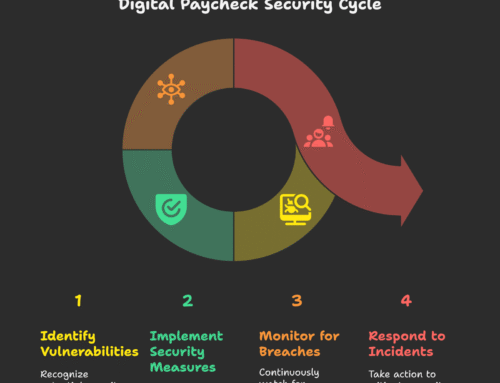Many people’s perceptions of work have shifted, and all indicators point to a further shift toward remote, collaborative, high-efficiency work arrangements for a variety of businesses. While no one could have predicted such a drastic transformation, businesses have tried to adapt to the best of their ability and face the challenges straight on.
Collaboration and productivity are both buzzwords that touch on a wide range of aspects of the inner workings of a company’s culture and operations. How can you persuade your staff to collaborate and experience a sense of success, responsibility, and respect for one another? What is the return on investment of new tools and productivity enhancements? With that in mind, below are 5 of the many tech integrations that can make a remote work environment radically more efficient.
IT and Cybersecurity Integrations
Remote monitoring and management systems are another easy way to make remote work more efficient and more secure. In the remote work era, remote companies need to be able to collect data from remote endpoints and networks in order to analyze their health and execute different remote IT administration operations on them without causing any disruptions. With the number of cybersecurity attacks on the rise, having good remote IT infrastructure in place is more necessary than ever.
Timer Apps
It’s all too easy to become sidetracked at home. Is it better to draft this report or make myself a sandwich? Maybe I should throw another load of laundry in before finishing this spreadsheet. Set a 10-minute timer, and don’t allow yourself to do anything else until the timer goes off. This helps you focus on work that needs to be completed right away so that you don’t procrastinate. When you don’t try to multitask and actually get down to business, you will be amazed by how much you can do in 10 minutes.
Photo by Vlada Karpovich from Pexels
Kanban-Style Project Management Tools
It’s critical to keep track of your tasks if you want to stay productive. This is where a Kanban-based monitoring system (such as Asana or Trello) comes into play. These two are the most effective for both professional and personal productivity, and it can be immensely satisfying to watch task progress and reach completion, no matter how small the task is. These tools are also great for auditing your workflows and finding out where people are hitting productivity bottlenecks and what may need to change.
Cohorts
Providing your staff with a pod-style framework can make their huge digital universe feel more manageable. Employees frequently ping each other on communication platforms when they want assistance or to inquire about the status of a project or request. Creating pods of a few colleagues allows your team to have humorous chats while also connecting them with cross-departmental colleagues they may not otherwise reach out to and initiate a video conference with.
This is especially useful for remote onboarding new team members who may be feeling a bit lost in the digital void. Consider pods as a well-being activity as well as a way to bring new hires into the fold; we all want to be connected and have human connections that aren’t only about doing tasks and meeting deadlines.
Google Drive/DropBox
Google Drive and/or DropBox are necessary remote work integrations because so many attachments are too large to send by email, which isn’t the optimal method of file organization, to begin with. You can simply transfer files and collaborate on projects using Google Drive and Dropbox.
For distant file sharing, Dropbox tends to be better, and for real-time collaboration, Google Drive. You can construct a folder like this to make things easier:
Start with the parent folder “/projects” and then organize each project folder as follows:
/Docs /Spreadsheets /Shared (General things to pass to other teams)
You can control permissions and share securely with external collaborators using these integrated tools. It gives the impression that you’re sharing a portion of your hard drive with your coworkers, which is exactly how it should be.
Conclusion
There are a ton of tools and remote work integrations on the market, both free and paid, that claim to help you make remote work and your remote employees more efficient. If you incorporate the short list above, you will have built yourself a solid tech foundation for fruitful and secure remote work.







Leave A Comment